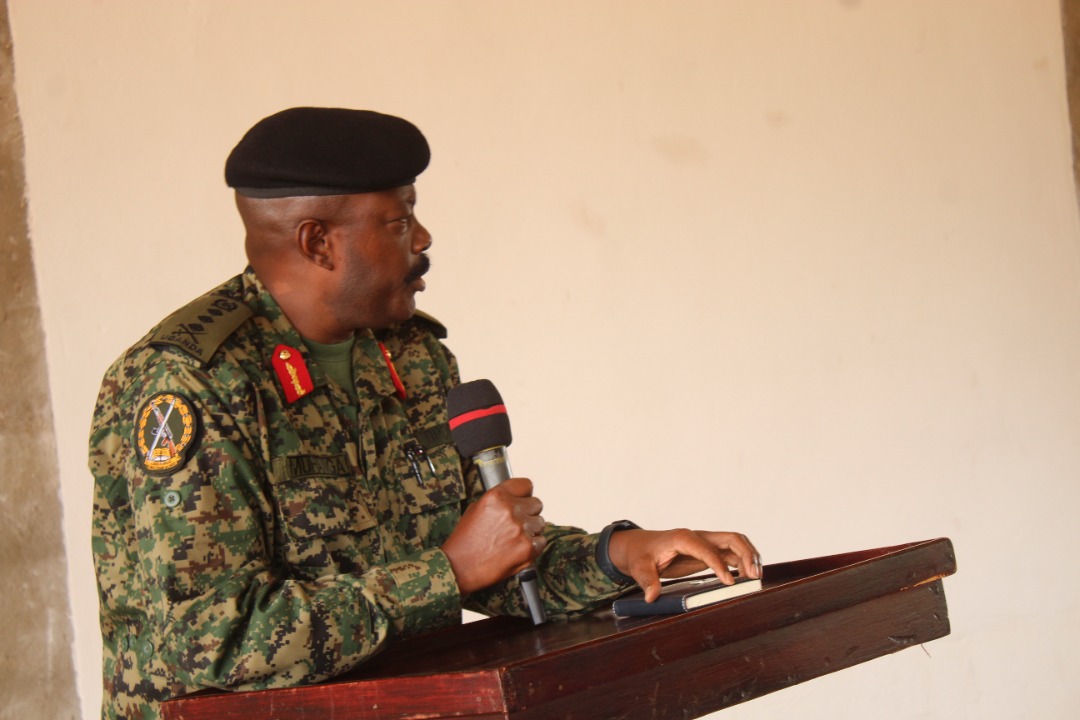Parliament has officially prohibited members representing the Uganda People’s Defence Forces (UPDF) from wearing combat uniforms while in the House. The decision, unanimously endorsed by both civilian legislators and UPDF representatives, is part of an amendment to the Rules of Procedure aimed at maintaining the dignity and decorum of Parliament.
The 25-member Standing Committee on Rules, Privileges, and Discipline, in its report reviewing parliamentary procedures, emphasized that combat uniforms are inappropriate in the legislative setting as they carry connotations of a “battlefield.” Instead, the committee recommended UPDF representatives wear Kaunda suits or ceremonial uniforms displaying their ranks, which are also part of the UPDF’s officially gazetted attire as per the Uganda Gazette Vol. CXII No. 46 of 2019.
“The Committee notes that the proposed dress code standards are not intended to dictate the personal choices of Members of Parliament but rather to preserve the dignity of Parliament as an esteemed institution and ensure that members maintain the stature befitting their title as Honourable Members,” the report states.
Committee chairperson Mr. Abdu Katuntu clarified that amending Rule 82 to ban combat uniforms does not prohibit UPDF attire altogether.
“The rule simply bans combat uniforms while allowing ceremonial UPDF uniforms with ranks,” he explained.
He further emphasized that the amendment does not question UPDF’s representation in Parliament, as their presence is enshrined in the Constitution.
Minority Report Calls for Total Ban on Military Attire
However, Butambala Woman MP Aisha Kabanda, in a minority report, proposed a total ban on all UPDF uniforms in Parliament. She argued that military attire carries psychological effects that can inhibit independent judgment due to the command-and-control culture within the military.
“Parliament is a forum for free thought and speech, yet military uniforms have a psychological effect that hinders the wearer from exercising independent judgment due to the command-and-control doctrine associated with the military. Additionally, military attire is often perceived as intimidating, as many people associate it with actions carried out by those in uniform,” she argued.
She further noted that MPs and citizens who have suffered harm at the hands of military personnel may find the sight of military uniforms distressing.
“Such attire does not foster a conducive environment in the People’s Parliament. Moreover, representatives of the army in Parliament receive the same remuneration as other Members of Parliament. There is no justification for additional taxpayer expenditure on uniforms for well-paid officers. This money could be better used to support underpaid serving personnel,” she contended.
Former CDF Defends UPDF Representation
In response, former Chief of Defence Forces Gen. David Muhoozi defended UPDF’s representation in Parliament, asserting that military members must be identifiable.
“We are a constituent and must be identified as such in our uniform. I agree that the camouflage uniform is for combat… we can approve Number Two for purposes of Parliament,” he stated.
Mr. Katuntu supported Gen. Muhoozi’s stance, reiterating that UPDF representatives should wear non-combat uniforms for identification purposes.
“UPDF officers should be identifiable by their ranks, so they cannot attend Parliament in civilian clothing. We want them to wear their uniforms if they wish, as their ranks are displayed on them. However, we propose that our UPDF officers should not wear combat uniforms (popularly known as Madowadowa) when in the House,” he explained.
UPDF Legislators Express Support
Lt. Gen. James Mugira, a UPDF legislator, welcomed the amendment, emphasizing discipline within the military.
“The institution we represent is disciplined, rule-based, and order-based. We are happy that the Committee has made these proposals to ensure decency, order, and prevent anarchy in this House. A uniform is a symbol of honour and identity, so we shall go back and organise ourselves,” he stated.
Beyond dress code amendments, members also discussed parliamentary conduct, including time management during debates and adherence to procedural regulations.
Speaker Anita Among underscored that the amendments aim to restore dignity in Parliament and ensure that members dress and conduct themselves professionally.
Inclusion of Cultural Attire in Dress Code
Parliament also amended the dress code for civilian legislators, officially permitting the wearing of kanzus and gomesis, particularly on Fridays. The decision followed extensive debate, with some MPs advocating for the embrace of African attire, while others expressed concerns about potential abuse under the guise of cultural expression.
Ultimately, the amendment was passed to accommodate traditional Ugandan wear while maintaining decorum in Parliament.





